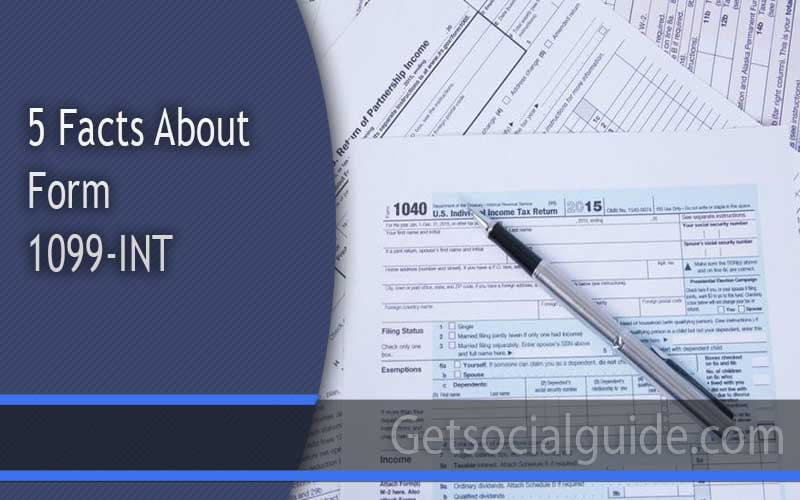5 Facts About Form 1099-INT
Form 1099-INT, also known as the Interest Income form, is an important document used by the Internal Revenue Service (IRS) to report the amount of interest income received by an individual or business during a tax year. The form is used to report interest received from various sources such as savings accounts, bonds, and certificates of deposit. Here are the top 5 facts about Form 1099-INT:
-
Who is required to receive a Form 1099-INT?
Form 1099-INT is required for any individual or business that has received interest income of $10 or more from a single source in a tax year. This means that if you have multiple bank accounts, each one may generate its own Form 1099-INT if the interest received is $10 or more. Additionally, if you received interest income from a savings bond, you may also receive a Form 1099-INT.
-
Who is required to file Form 1099-INT?
Financial institutions, including banks, credit unions, and brokerage firms, are required to file Form 1099-INT for each person or business that received interest income of $10 or more from them in a tax year. They must also provide a copy of the form to the recipient and the IRS by January 31st of the following year.
-
What information is required on Form 1099-INT?
Form 1099-INT includes various pieces of information, including the name and address of the recipient, the amount of interest income received, and the taxpayer identification number (TIN) of the recipient. The TIN can be either a Social Security number (SSN) for individuals or an Employer Identification Number (EIN) for businesses. Additionally, Form 1099-INT may include any federal income tax withheld and backup withholding information, if applicable.
-
What happens if a Form 1099-INT is not received?
If you did not receive a Form 1099-INT but you believe you should have, you should contact the financial institution that paid the interest. They may have a lost or incorrect address on file for you. If the financial institution is unable to provide the form, you can estimate the amount of interest income you received and report it on your tax return.
-
What are the penalties for not reporting interest income on your tax return?
Not reporting interest income on your tax return can result in various penalties from the IRS, including fines and interest charges. Additionally, if the underreporting of interest income is found to be intentional, you may face criminal charges for tax evasion. To avoid these penalties, it is important to accurately report all of your interest income on your tax return, even if you did not receive a Form 1099-INT. F
orm 1099-INT is an important document used by the IRS to report the amount of interest income received by an individual or business during a tax year. Financial institutions are required to file the form and provide a copy to the recipient and the IRS. If you did not receive a Form 1099-INT, it is important to contact the financial institution or estimate the amount of interest income received and report it on your tax return. Accurately reporting all interest income is essential to avoid penalties from the IRS. https://blog.boomtax.com/essential-guide-form-1099-int/



